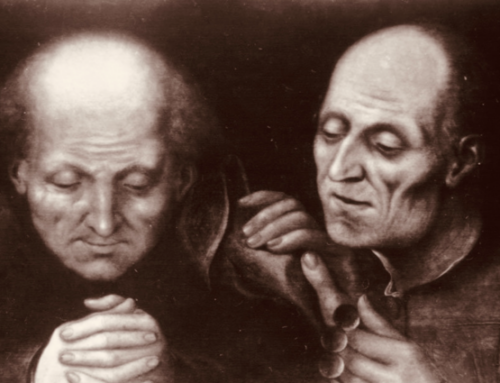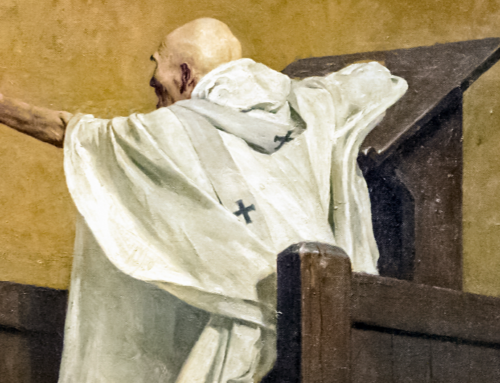The world has been and will continue to be overwhelmingly traditionally religious, whatever intellectuals like Nietzsche might have expected to the contrary, thus confirming those philosophers who contend that all civilizations must be supported by such moral frameworks…
 San Diego State University recently announced what it called perhaps the largest ever study of American youth beliefs in which its professors found that today’s is the “least religious generation” in U.S. history.[1] Compared to the late 1970s, 75 percent more 12th graders said religion is “not important at all” in their lives, which the announcement claimed was “part of a larger cultural context” of “rising individualism” that “puts the self first.”
San Diego State University recently announced what it called perhaps the largest ever study of American youth beliefs in which its professors found that today’s is the “least religious generation” in U.S. history.[1] Compared to the late 1970s, 75 percent more 12th graders said religion is “not important at all” in their lives, which the announcement claimed was “part of a larger cultural context” of “rising individualism” that “puts the self first.”
Since every society requires some agreement on common behavior, this would be big news. Even intellectual giants like Jean-Jacques Rousseau and Auguste Comte, who rejected traditional religion, felt it necessary to offer what Eric Voegelin labeled “secular political religions” in their place. Some agreed-upon moral sense must underline law or all social order must simply rest upon pure force.
San Diego’s was just one among numerous media reports of a grim future for religion in the U.S. Evangelical Christians even felt it necessary to respond with a popular movie series “God’s Not Dead,” challenging Friedrich Nietzsche’s classic philosophical work. A leading conservative author even begins his well-regarded book on modern American culture with the statement “There is no God in this book,” although backing off somewhat near the end.[2]
It is all a bit confusing. What the San Diego State news announcement did not mention was that the actual study found that the percentage increase of U.S. high school students saying religion was not important at all was large, but this was from an extremely low base and totaled merely a 22 percent minority expressing this opinion.[3] The vast majority of these young respondents still said religion was at least somewhat important in their lives, as do most U.S. adults.
Looking to the raw data we find more. What a large plurality of U.S. youth actually said they were dissatisfied with was government. And only one-third agreed “our system of doing things” was the world’s best. As far as religion, one-third of these millennials attend church once a week or more, 15 percent once or twice a month and even 32 percent less frequently. Two-thirds said finding a purpose for their lives was extremely important, and an additional fourth said this was “rather important.”
Well, God and religion were dead in Europe, surely; although perhaps not Allah?
It turns out the authoritative Pew Research Center had just completed a comprehensive study of 24,000 people in fifteen Western European countries finding, as most everyone thought they knew, that most Europeans were religiously non-practicing, with only one-fifth attending religious services monthly or more.[4] Yet, contrary to expectations, 71 percent of Europeans insisted they were still Christian, with 65 percent believing in God or a higher power, and 51 percent saying they pray. Moreover, 70 percent said they were raising their children as Christians.
There were differences by country. In Italy 40 percent did attend church regularly (and another 40 percent were non-attending Christians), with 35 percent attending church in Portugal, 34 percent in Ireland, 28 percent in Austria, and 27 percent in Switzerland (Poland was not included in the survey), all near U.S. levels. There was a very distinct north-south and Protestant-Catholic difference: In the Netherlands, Norway, Sweden, Belgium, and Denmark only one-in-ten attended regularly and four-in-ten were unaffiliated with religion. Only Netherlands had a non-Christian plurality but even there only 17 percent said they were specifically atheist or agnostic.
The British magazine Christian Today was intrigued by the study finding that European Christians were more likely to “express anti-Muslim and anti-Jewish views” than those not affiliated with religion, although it is hardly surprising that those with stronger beliefs would be more protective of their values.[5] Specifically the study asked whether it was important to have a British family background or to have Muslims or Jews accepted into their families. Was this simple prejudice or perhaps not wanting daughters pressured into hijab or prohibited from shaking hands with men?
The Atlantic magazine’s intriguing headline about the Pew study was “Atheists Are Sometimes More Religious than Christians.”[6] It noted that many religiously unaffiliated were still religious in many ways. Even more “striking” was that American religiously unaffiliated were “as religious as—or even more religious than—Christians in several European countries, including France, Germany, and the U.K.” “The notion that religiously unaffiliated people can be religious at all may seem contradictory, but if you disaffiliate from organized religion it does not necessarily mean you’ve sworn off belief in God, say, or prayer.”
The study actually divided Europeans into church-attending Christians at 18 percent, those who identified as Christians but attend irregularly or rarely at 46 percent, and those who were religiously unaffiliated at 24 percent. In most cases the infrequent attenders still held religious convictions. While almost all those attending believed in God or a higher power, three-quarters of the non-participants did too and even one-quarter of the non-religious. Almost all churchgoers were raising their children as Christians but so were 87 percent of non-attendee Christians.
While most regular- and irregular-attending Christians disagreed, 73 percent of the quarter of the population unaffiliated with traditional religion reported that science replaced religion in making their personal decisions. This matter of atheism and religious belief is quite complicated. Even the world’s then leading scientific atheist Stephen Hawking once said, “I believe the universe is governed by the laws of science” but then added: “The laws may have been decreed by God, but God does not intervene to break the laws.”[7]
Pew also recently released a global study of worldwide beliefs.[8] The headlines blared that the Muslim population would “begin” outgrowing the Christian one by 2030 but that those with no religion were facing a “birth dearth.” They were a bit misleading. All traditional religions except Buddhism would continue growing so that even by 2060 Christianity would remain the largest world religion at 3 billion, Islam at 2.9, Hindus 1.4, other religions 0.9 and the unaffiliated at 1.2 billion. Yet, while the supposed unaffiliated were estimated to be 12 percent of world population, only 18 percent of these were in Europe and North America and 75 percent in Asia, mostly in China where religious activity is controlled by the government, probably overestimating the worldwide number of those without religious ties.
In a note Pew itself conceded that China was a “wild card” in its report since most rated in its study as “unaffiliated” were from that nation and religious affiliation there actually could be much higher than reported due to fear of authorities.[9] Earlier Pew studies did find from a third to a majority in China saying religion was somewhat important in their lives.[10] A later Freedom House study estimated there might be 185 to 250 million Buddhists (questioning its supposed worldwide decline) and Taoists in China, who are actually supported by authorities, plus 70 million Christians and 20 million Muslims curbed in one way or another, and Pentecostal Christians, Tibetan Buddhists, Uighur Muslims, and Falun Gong strongly persecuted.[11]
Worldwide the population is overwhelmingly traditionally religious. The U.S. appears in the middle of world nations religiously with a majority reporting religion “very ” important in their lives, well above Western Europe and even South America but behind Africa, the Middle East and Asia (excluding China).[12] Europe was the only region predicted to lose population and religious adherents over the coming decades, with Protestant nations estimated to lose adherents compared to southern Catholic countries. Mainline Protestantism was predicted to decline in Europe and America, and pentecostals, evangelicals, and other non-Reformation Christian-identifying denominations were increasing in worldwide adherents.
In sum, outside Europe only a few do not identify with some traditional religion, and those few were set for a birth-dearth decline of almost a quarter of its world proportional share—and as Pew concedes, properly reporting on China would greatly intensify that decline. The largest religion, Christianity, will dramatically lose population in Western Europe and in the U.S. marginally but will increase substantially in South America, Africa, and Asia, perhaps coming into conflict with an even-faster-growing Muslim population in the latter two continents.
It is Western Europe that is different in its secularism, but even there merely a third say science makes religion superfluous, most still identify as Christian and believe in God, pluralities embrace spiritual concepts such as the soul and an afterlife, and most say traditional religion has social importance in their lives.
The world has been and will continue to be overwhelmingly traditionally religious, whatever intellectuals like Nietzsche might have expected to the contrary, thus confirming those philosophers who contend that all civilizations must be supported by such moral frameworks.
The Imaginative Conservative applies the principle of appreciation to the discussion of culture and politics—we approach dialogue with magnanimity rather than with mere civility. Will you help us remain a refreshing oasis in the increasingly contentious arena of modern discourse? Please consider donating now.
Notes:
[1] “The Least Religious Generation” by Beth Downing Chee, in SDSU NewsCenter (May 2015).
[2] Suicide of the West: How the Rebirth of Tribalism, Populism, Nationalism, and Identity Politics is Destroying American Democracy by Jonah Goldberg (Crown Forum, 2018).
[3] “Generational and Time Period Differences in American Adolescents’ Religious Orientation, 1966–2014” by Jean M. Twenge , Julie J. Exline, Joshua B. Grubbs, Ramya Sastry, and W. Keith Campbell, in Plos One (May 2015).
[4] “Being Christian in Western Europe” in Pew Research Center (May 2018).
[5] “Christians in Europe more likely to express anti-Muslim and anti-Jewish views than religious ‘nones’” by Harry Farley, in Christian Today (May 2018).
[6] “Atheists Are Sometimes More Religious Than Christians” by Sigal Samuel, in The Atlantic (May 2018).
[7] “‘I’m not afraid’: What Stephen Hawking said about God, his atheism and his own death” by , in The Washington Post (March 2018).
[8] “The Changing Global Religious Landscape” in Pew Research Center (April 2017).
[9] “Why people with no religion are projected to decline as a share of the world’s population” by Michael Lipka and David McClendon, in Pew Research Center (April 2017).
[10] “Religious in China” by Russel Heimlich, in Pew Research Center (July 2008).
[11] “The Battle for China’s Spirit: Religious Revival, Repression, and Resistance under Xi Jinping” in Freedom House (2016).
[12] “Americans are in the middle of the pack globally when it comes to importance of religion” by Angelina E. Theodorou, in Pew Research Center (December 2015).







Excellent and encouraging piece, especially with the data.